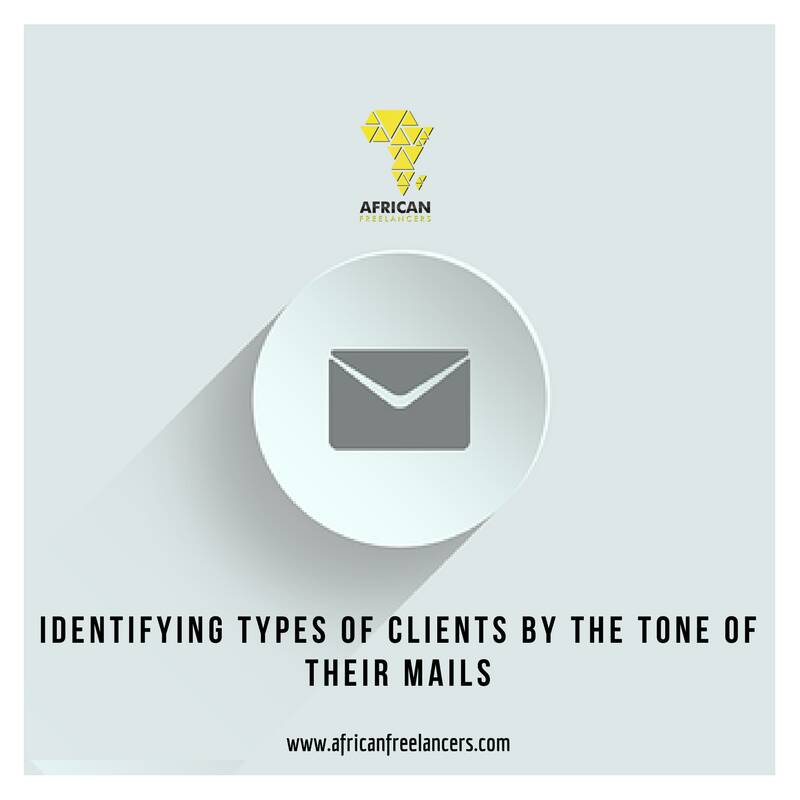You’re probably wondering why this of all things to write on as regards freelancing? Or maybe you’re thinking; why would I ever want to walk out of a freelance contract? Or maybe you are probably thinking you won’t be needing this anytime soon but do hold up, it’s not unnecessary neither is it untimely to write on this because I have realized that much emphasis have been laid on how to get jobs and keep jobs as a Freelancer but not so much on walking out or ending a Freelance Contract.

So many things could lead to ending a Freelance contract whether abruptly or appropriately and it’s noteworthy to say that most times, Freelancers walk out of freebies abruptly and without notice. Aye, I’ve been guilty of this. First of all, is this wrong? Yes it is but it is sometimes understandable in the sense that the Freelancer is a human being who had felt so many things and had come to the conclusion that letting go of an offer taken without prior notice is the best option because most of the time, freelance freebies don’t usually come with a signed contract on both parties end but something that looks like a contract stating what the Freelancer gets and don’t get in the course of freelancing on their platform and maybe the Freelancer could have figured out that if I decided to make my intentions known about walking away, he/she might be convinced to stay and might probably find it difficult to say No but professionally, it is all shades of wrong no matter what.
Let me say again that most times Freelancers do take advantage of freebies by walking out of it at their own end without letting the other person involved in the Freelancing process know simply because it is a freebie. What do I mean by that? I mean it’s not paying me, therefore, I don’t owe them an explanation attitude. That’s so wrong on all levels.

So, when is it okay to walk out of a Freelance Contract.
1. If you ever have to change your writing voice to make your employer comfortable, please it’s okay to close your eyes to the offer and move along. I am very protective of my voice and my content and it is nowhere sensible to change what you talk about to make other people comfortable. It should never be a case of this is what you talk about or nothing, period! It doesn’t matter how much you are offered or being paid if you’re not comfortable and it feels like you’re craft is dying inside.
2. It’s okay to walk away from a platform if you find a better offer that won’t give you enough time to stay dedicated to other offers be it a freebie or paid.
3. Walk away if you can’t cope with the enormity/stress. Most times, Freelancers do bite more they can chew (permit me to use that idiom). Don’t let covetousness control you. Take only what you can handle. Stop juggling three Freelancing jobs if it sags and dampens your spirit. If you can be faithful to just one, pick one. Stop letting people’s portfolio intimidate you into taking offers that could jeopardize your integrity. It is not wise to be a Freelancer on four platforms when all you do is struggle with all the four. Stay true to yourself.
4. Walk away from platforms that don’t attract your interest. Never should you be motivated by money primarily. Try new things but not new things you hate or your soul is probably not enthusiastic about. Don’t take up the job to run a gossip blog because the pay is handsome if such things don’t interest you. Money is not satisfaction. There are platforms for people with your writing voice too.
5. Walk away if you’re losing the grip of your confidence. When a platform makes you feel like they are doing you a favour and you should be grateful you’re on their platform, please take a bow. Yes, they gave you an avenue to showcase your gift doesn’t mean they own you. Don’t let anyone make you feel you’ll regret choosing to move along and like if you know how many people are willing to work with us attitude.
How to walk away
If you must end a contract for any reason, let it be the same way you got it. Every written contract always makes provision for future termination. So, if it is a three-month prior notice, stick to it and if there was no provision for such, make use of your email. Always notify your employer.
Finally, learn to discern between when someone is advising you and telling you. One is beneficial to your growth while the other can be pretty controlling and limiting. So, believe me, true art doesn’t really thrive so much on the latter. Also, find the ones worth keeping. You can’t keep it all.





